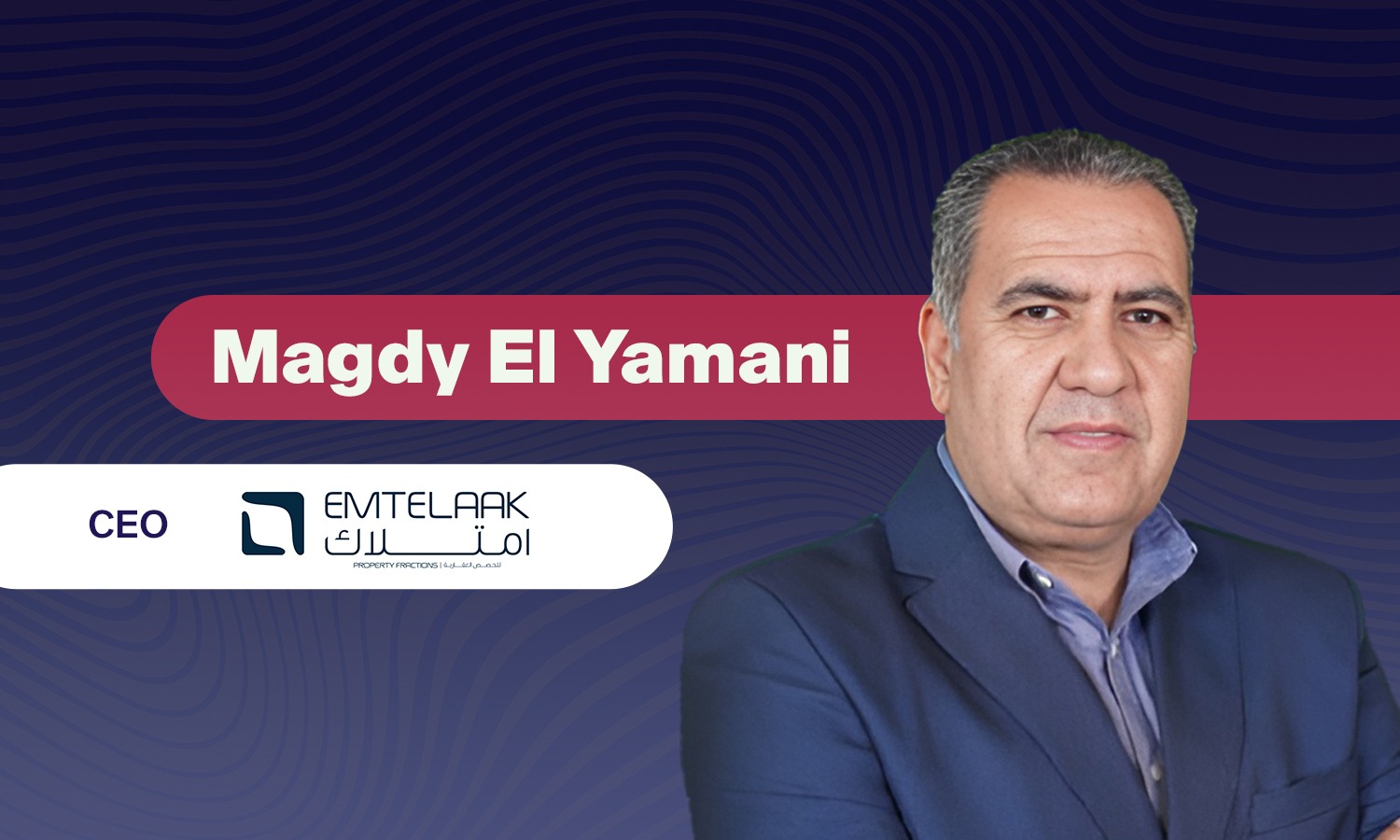Port Digitalization: A Game Changer for Egypt’s Trade
Updated 1/14/2025 8:00:00 AM
Egypt is transforming its port infrastructure to enhance its position as a key player in global trade. Recognizing the critical role of technology, the country is prioritizing the digital transformation of its ports, focusing on developing a unified information system to seamlessly connect seaports, dry ports, and inland terminals. This integrated system aims to streamline operations, reduce delays, and enhance overall efficiency.
The Digitalization Project
Egypt boasts a network of 55 seaports, comprising 18 commercial ports and 37 specialized ports, as reported by the Egyptian Maritime Transport and Logistics Sector (MTLS).
In recent years, Egypt has built 22 dry ports, as part of an ambitious plan to build 33 dry ports and seven logistical corridors across the country, as published by the State Information Service (SIS) earlier in January.
The Ministry of Transport, through the Maritime Transport Sector, is working on a project to link dry ports and seaports via a unified information system to facilitate exports.
It is noteworthy that the COVID-19 pandemic heightened the need for flexible, resilient, and precise logistics systems capable of adapting to various disruptions. Modernizing both technological and administrative infrastructures at ports is a crucial aspect of this adaptation.
Hence, the government is actively pursuing digital transformation across all sectors, including logistics. This long-term strategy for digital transformation aims to connect seaports and dry ports with manufacturing hubs and consumer centers through integrated road and rail networks.
Khalid El Ghazouli, a group IT director and ports expert, emphasizes, “Digitalization is the cornerstone for positioning Egypt as a leading maritime hub.”
“Integrating technologies such as terminal operating systems (TOS), cloud computing, and data analytics can boost operational efficiency and reduce turnaround times at Egyptian ports,” he tells Arab Finance.
Meanwhile, Economist Omar Wahban explains to Arab Finance: "Integrating smart technologies across Egyptian ports and implementing a unified information system linking dry ports and seaports is a vital step to alleviate competitive pressures with regional competitors such as the UAE and Saudi Arabia. Combined with Egypt’s strategic location, this can strengthen its position as a regional trade hub."
The Economic Advantages of Modernized Ports
The Ministry of Transport announced in April 2024 that Egypt spent EGP 129 billion on seaport upgrades and EGP 15 billion on dry ports and logistics zones from 2014 to 2024. This cost is part of a comprehensive plan to modernize the country’s transportation system.
“The expected benefits of these upgrades are expected to outweigh their costs in both the short and long term. Key benefits include job creation, reduced corruption and misconduct, faster cargo handling with productivity expected to increase by up to 35%, and expected lower operational costs by 25-55%.”
“Additional advantages involve increased revenues, improved employee safety, and reduced fuel consumption,” Wahban adds.
The digitalization of Egypt's ports is likely to significantly boost exports and bolster economy. Salma Chalabi, economics specialist and PhD Student, tells Arab Finance: “Digital transformation is anticipated to greatly increase export volumes by improving operational efficiency.”
“Automated customs procedures and real-time data sharing will reduce processing times and enhance cargo handling capabilities. For example, Cartagena Port in Colombia improved its global ranking by adopting digitized tools to offer real-time information and automated authorizations. Similar improvements in Egypt could streamline exports and boost volumes,” Chalabi highlights.
El Ghazouli agrees, noting that a unified information system is a transformative initiative that seamlessly integrate dry ports and seaports.
“For exporters, this system provides transparency and efficiency, enabling real-time shipment tracking and reducing logistic bottleneck. It also ensures customs, shipping lines, and transporters stay interconnected, which minimize delays caused by manual interventions,” El Ghazouli says.
“With enhanced visibility and predictive analytics, exporters can make informed decisions, optimize supply chain operations, and improve overall customer satisfaction,” he adds.
Modernized and digitalized ports, along with the unified information system, enhance trade efficiency. Regarding this, Wahban states, “Modernizing port infrastructure and processes leads to faster ship turnaround times and increased handling capacity. This efficiency attracts more shipping lines, enhancing trade volumes and related revenues, such as duties and economic activities tied to goods distribution.”
Moreover, state-of-the-art ports provide Egypt with a competitive edge. By improving efficiency and transparency, they attract international investors, driving trade volumes and economic growth, according to Wahban.
When it comes to foreign investments, Chalabi says, “The advancements in digital infrastructure are likely to attract increased foreign investment in Egypt’s maritime sector. Successful examples like King Abdullah Port in Saudi Arabia demonstrate how private sector involvement and digital upgrades can enhance port capabilities and attract investment.”
“As Egypt upgrades its port capabilities through digitalization, the country is expected to foster an environment conducive to economic growth. This growth will be driven by increased trade activity, job opportunities in logistics and related sectors, and enhanced competitiveness on the international stage,” she points out.
Considerations for Successful Port Modernization
Egypt’s port digitalization efforts face several challenges. In this regard, Wahban says, “The primary challenge is high upfront costs for digital transformation. Significant investment is required to cover these costs, which poses a greater challenge as Egypt tries to cut its budget deficit.”
“However, the government recognizes the long-term outcomes of such transformation and has shown its full support and commitment to the planned development,” Wahban notes.
As for Chalabi, she points out, "The government envisions a modernized port infrastructure to boost capacity and positions Egypt as a key player in global trade routes.” She cites the Port of Rotterdam as a successful example of adopting advanced technologies like IoT and automated terminals.
Chalabi also mentions that Egypt plans to upgrade its ports with new berths and logistics facilities to boost efficiency.
“The unified digital system aims to streamline operations across all types of ports, enhancing connectivity between dry ports and seaports. This integration is expected to create a seamless logistics network that improves efficiency and reduces delays,” as per Chalabi.
Accordingly, El Ghazouli indicates that the adoption of advanced digital solutions can scale up export volumes due to reduced lead times, improved predictability, and enhanced supply chain resilience.
“For instance, automation and data integration across platforms can cut operational inefficiencies by 30% to 40%, which enables terminals and ports to handle more cargo with the same resources,” El Ghazouli highlights.
“Streamlined processes and reliable services give exporters a competitive edge in global markets. These initiatives also promote sustainability by optimizing resource use, attracting environmentally-conscious partners, and driving further growth,” according to El Ghazouli.
To ensure successful digitalization of Egyptian ports, El Ghazouli stresses the importance of cybersecurity. “Implementing robust cybersecurity measures, combined with modern infrastructure like automated cranes and weighbridges, make ports more reliable and attractive to global investors,” he clarifies.
He adds, “These advancements will not only increase competitiveness but also strengthen Egypt’s role as a strategic player in global trade.”
Egypt's ambitious port modernization program, driven by digital transformation and a focus on interconnectedness, holds the key to unlocking significant economic growth.
By seamlessly integrating all port types through a unified information system, Egypt can streamline logistics, cut costs, and solidify its competitive position in the global market.
By Sarah Samir
Related News











